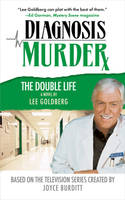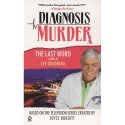My brother Tod and I were talking the other day about certain authors we know who burst onto the scene with a great book and have been replicating that same novel ever since with ever-worsening results. It’s a dangerous rut for writers to get into, as bestselling author Tess Gerritsen points out.
Selling a book is just the first step in your career as a writer. Look
at all the first-time novelists who later vanished from the publishing
world. They discovered a very painful truth: to make a career in this
field, you’ll have to do a lot more than just sell one book[…]
If the books you’re writing aren’t finding an
audience, maybe it’s time to write a different kind of book. In my
case, I first moved from romance to thrillers. I loved writing
romance, but I just couldn’t write fast enough to make a living at it.
Writing for Harlequin was fun and satisfying, and I loved the genre,
but when each book was only earning out around $12,000, I knew I’d
never send my kids to college on my earnings as a writer. As it turned
out, I had a great idea for a medical thriller (HARVEST), which was my
debut novel on the New York Times list.
But four books later, I could see that my medical thriller sales
were flat, and even starting to decline. By then I had a crime
thriller in mind, one that I couldn’t wait to write. With THE SURGEON,
I launched the Jane Rizzoli series. And my sales have increased since
then.
If Harlan Coben had stuck with his Myron Bolitar books instead of shifting to standalone thrillers, would he be the international success that he is now? And if Michael Connelly, Ed McBain, Robert B. Parker, Richard Stark, Laura Lippman, Lawrence Block and Robert Crais hadn’t stepped away from their long-running series to write other books (and other series), would their writing have remained as fresh? I don’ t think so. I believe one of the reasons they’ve been so successful is because they’ve branched out into other areas (of course, there’s always folks like Sue Grafton, Lee Child, Barry Eisler, and Ian Rankin who do just fine without leaving the confines of their series).
It’s why I’m glad I had the opportunity the last couple of years to alternate between writing the DIAGNOSIS MURDER and MONK books…they are two very different kinds of writing, even though they are both mystery series. DM is written in third person and is essentially a drama. MONK is written in first person and is primarily a comedy.
Shifting between genres is also one of the pleasures of screenwriting. I’ve written, for instance, about lifeguards (Baywatch), private detectives (Spenser For Hire, Monk), werewolves (She Wolf of London), clever dolphins (Flipper), cops (Hunter), FBI agents (Missing), cross-dressing comics (Dame Edna), and just this week I wrote a pilot about urban street racing.
I like to think that the challenge of writing in different genres, characters and voices — and doing so in books and TV — keeps me and my writing fresh.
(updated 1.1.07)










